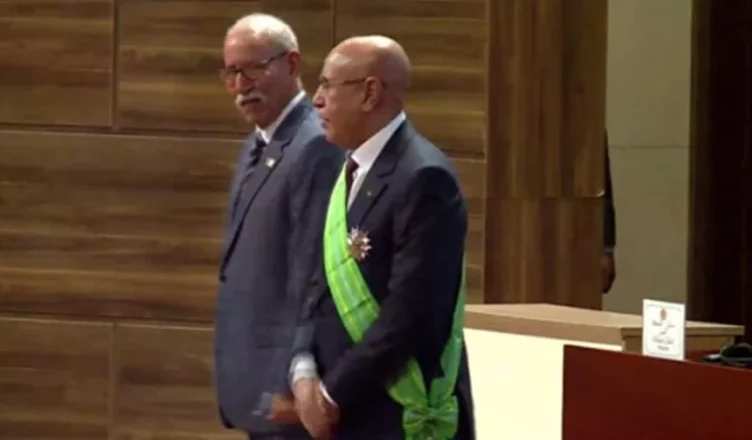Algeria continues its support for the Polisario Front, a terrorist group claiming independence for Western Sahara, despite a diplomatic decline and increasingly marginal international recognition, according to Western experts. Several countries have recently withdrawn their support for the Polisario, and the organization will soon be listed as a terrorist entity by the United Nations, a decision that could further isolate Algeria and destabilize its regional relations, costing the country dearly on both diplomatic and economic fronts.
In this context, the military regime of General Saïd Chengriha and President Abdelmadjid Tebboune, in order to maintain power, is adopting increasingly bold strategies, particularly in Mauritania. The recruitment of Mauritanian and African mercenaries is likely to have deep repercussions on the political stability of the Mauritanian government. This situation poses a real challenge not only for Mauritanian President Mohammed Ould Ghazouani’s regime but also for the entire regional order.
Algeria’s recruitment of Mauritanian paramilitary militias is a direct response to what it perceives as a « weakness » in the region. These militias, composed of Mauritanians and financially and militarily supported by Algeria, are believed to be trained to carry out destabilizing actions in the region to support the Polisario. However, this maneuver carries significant risks for Mauritania itself.
The growing influence of Algeria through these militias threatens to erode the authority of the Mauritanian government. Already fragile domestically, it could find itself caught between the need to maintain balanced relations with Algeria and the increasing internal pressures, particularly from opponents who view this interference as a challenge to national sovereignty.
Mauritanians, united under a government trying to establish a balance between various ethnic and political factions, could see their national unity weakened by the extension of Algerian influence. As a Sahel country, Mauritania, while maintaining an official neutral stance on the issue of the Sahara, has become a central player in the regional dynamic. Algeria, for its part, seeks to exploit this geographical position to increase its influence, even by destabilizing it.
The Mauritanian government could find itself in an increasingly complex situation, caught between two fires: on the one hand, the need to maintain relations with Algeria, and on the other, the growing pressure from the international community and internal factions to resist Algerian interference.
Algeria’s support for the Polisario and the formation of paramilitary militias in Mauritania could turn the country into an indirect battleground between Algeria and Morocco, further destabilizing an already fragile nation, according to military analysts. Algeria, already under pressure for human rights violations and its controversial internal management, would find itself even more isolated.
Mauritania could become a proxy war zone, exacerbating internal divisions and threatening the country’s stability. The Mauritanian government might be forced to adopt authoritarian measures to maintain control, which could undermine its efforts to consolidate a fragile democratic transition. The country is in a delicate position, caught between its relations with Algeria, growing international pressures, and its own people.
France, the United States, and the European Union are key players in the fight against terrorism in the Sahel region, and their support for the Mauritanian regime could be jeopardized if it is seen as increasingly vulnerable to Algerian influence. If Mauritania becomes destabilized or dependent on Algerian paramilitary forces, it could make its strategic alignment more difficult and potentially erode its international partnerships.

